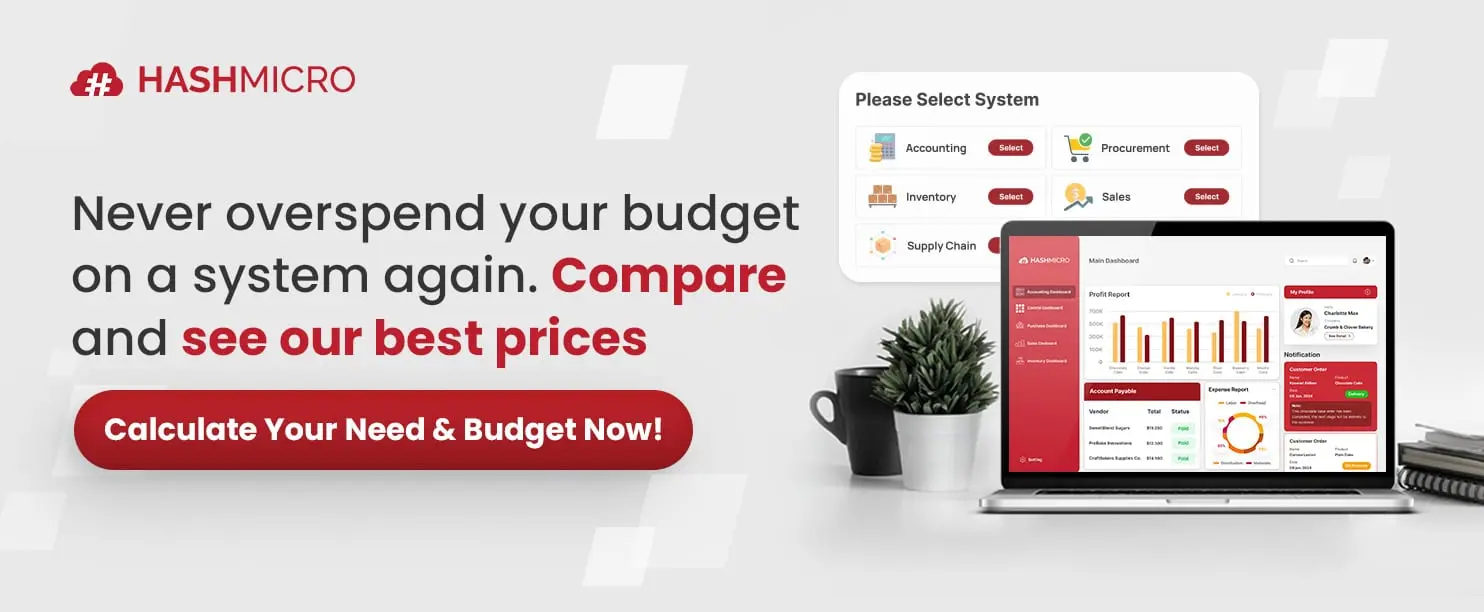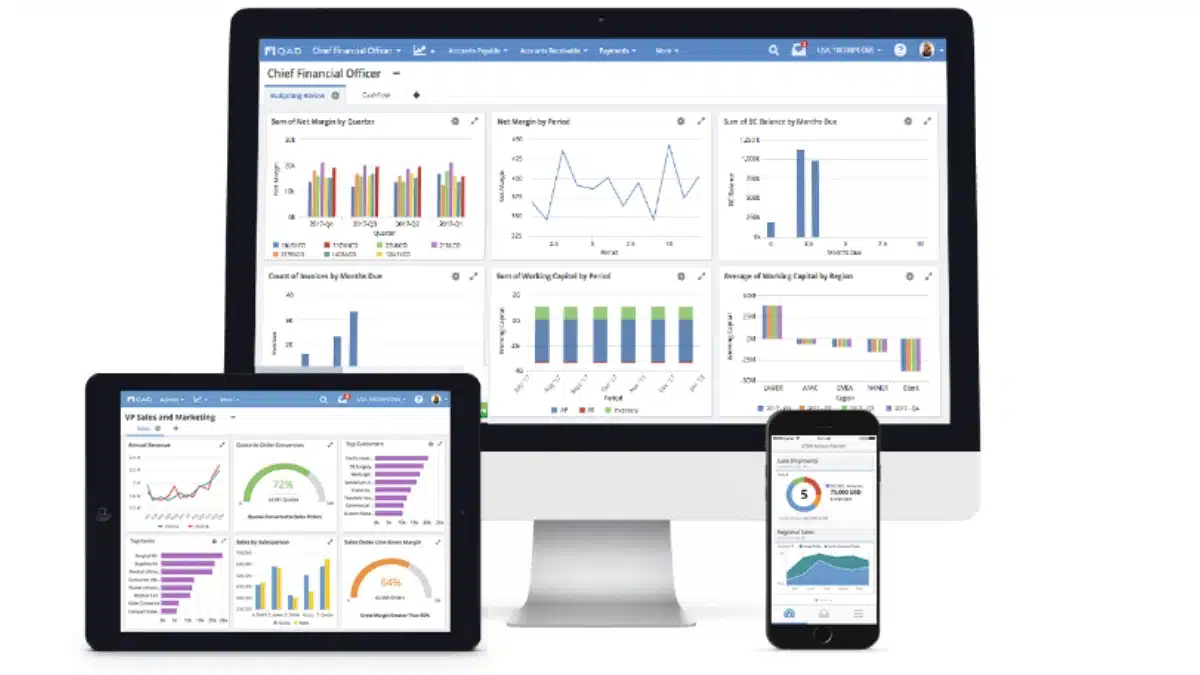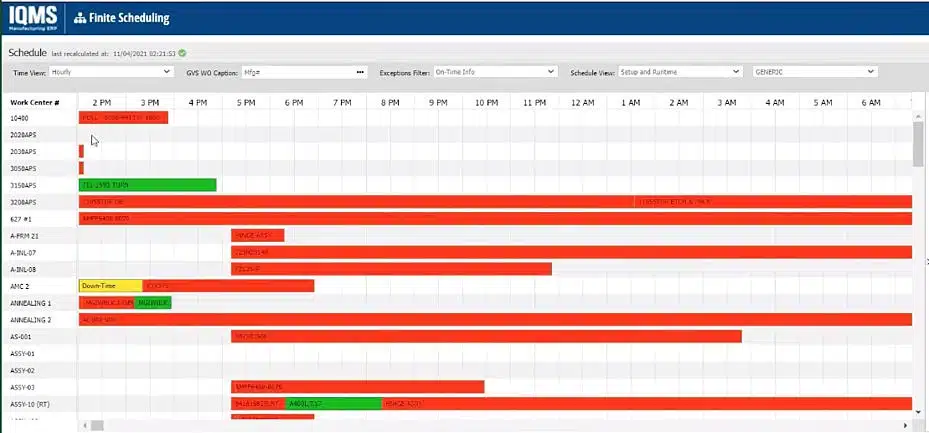With dozens of manufacturing engineering software options on the market, picking the wrong one can cost you months of wasted implementation time and real money. But the right one? It can cut production delays, tighten your inventory control, and give you visibility you never had before.
In Malaysia, manufacturers are adopting smarter systems to stay competitive. The future of manufacturing systems engineering lies in automation, AI-driven insights, and faster data processing, all of which require the right software to support evolving operational demands.
This article highlights 12 of the best manufacturing engineering software options in Malaysia. Some providers, including HashMicro, offer a free demo so you can explore the features before committing. Keep reading to find the software that fits your operations and future growth.
Key Takeaways
|
What is Manufacturing Engineering Software?
Manufacturing engineering software automates and optimizes production, streamlining product design, inventory, and planning. It reduces errors and boosts efficiency, ensuring smoother workflows.
This solution combines engineering design software and manufacturing principles, such as Good Manufacturing Practice, for early detection of inefficiencies in manufacturing processes. Using real-time data, businesses can adapt quickly to meet demand without compromising quality, leading to faster, more accurate production that cuts time and costs.
Many manufacturing software programs easily connect with ERP systems, creating a unified platform to manage production, procurement, and finance. This helps companies monitor and improve operations from raw materials to delivery, boosting decision-making and productivity.
Why is Manufacturing Engineering Software Important For Your Business?
 Choosing the right manufacturing engineering software is essential for improving operational efficiency and staying competitive. This software helps streamline various production processes, manage resources, and improve product quality. In the following sections, we’ll explore how it can directly benefit your business.
Choosing the right manufacturing engineering software is essential for improving operational efficiency and staying competitive. This software helps streamline various production processes, manage resources, and improve product quality. In the following sections, we’ll explore how it can directly benefit your business.
Streamlining manufacturing operations and improving efficiency
Manufacturing engineering software combines processes such as production planning and inventory management, reducing manual errors and increasing efficiency. For Malaysian manufacturers, this shortens lead times, allows for quicker market response, and boosts productivity.
Enhancing resource allocation and reducing waste
Without proper resource tracking, you might over-order raw materials one month and run short the next. A good manufacturing ERP keeps tabs on your materials, manpower, and machines, so nothing goes to waste.
Industry-specific customization for better performance
Each manufacturing sector faces unique challenges. Manufacturing engineering software provides tailored modules for industries like automotive, electronics, or food production. For instance, automotive firms can track parts and assemblies, while food producers can ensure compliance and quality.
Real-time data and improved decision-making
Imagine knowing exactly which machine is underperforming at 2 PM on a Tuesday and why. Real-time data gives you that kind of clarity, so your decisions are based on what’s actually happening, not last month’s spreadsheet.

Top 12 Manufacturing Engineering Software in Malaysia
Selecting the right manufacturing engineering software is crucial for businesses in Malaysia, as it ensures seamless operations and competitiveness in the market. With so many ERP options available in 2026, it’s essential to evaluate each one based on your business’s unique needs.
Whether you’re considering manufacturing & engineering software to streamline production, manage resources, or improve workflow, choose software tailored to your industry. Here’s a list of top 12 ERP systems with key features, pros, and cons to help you decide.
1. HashMicro Manufacturing ERP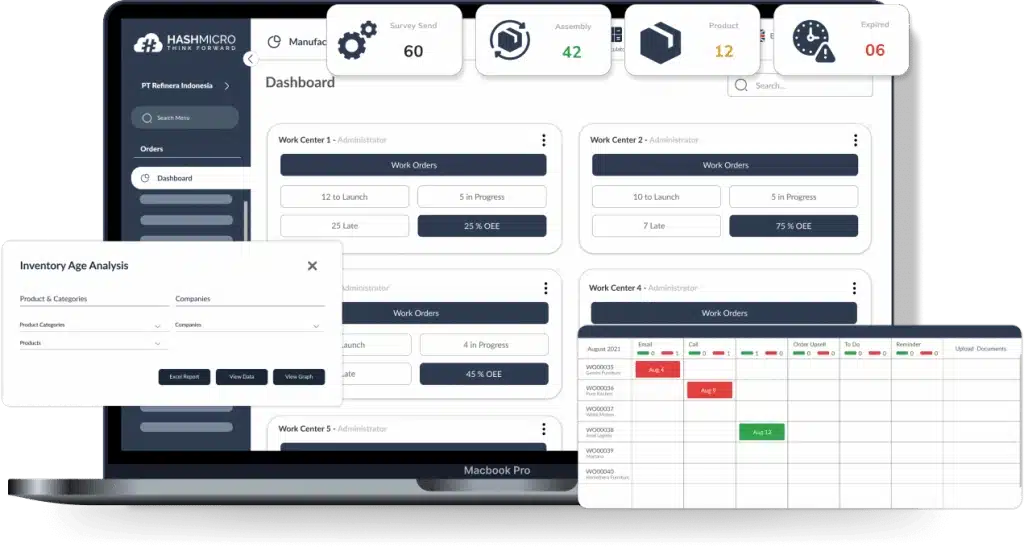
HashMicro is a Southeast Asia-based ERP provider offering an end-to-end manufacturing solution tailored for businesses in Malaysia, trusted by over 2,000 businesses across Southeast Asia. The platform covers production planning, inventory management, procurement, and quality control within a single integrated system, and is designed to comply with local regulatory requirements.
The system is built with a modular architecture, allowing manufacturers to select and combine features based on their specific operational needs. It also supports IoT integration for real-time production monitoring and provides analytics tools for tracking performance across the shop floor.
For manufacturers looking to improve operations, HashMicro offers a free demo where you can explore how the system automates processes such as production planning, inventory management, and procurement. This demo provides a firsthand look at how HashMicro seamlessly integrates with other business tools, supporting your manufacturing needs.
Some of its key features include:
- Kiosk mode: A front-end display that enables workers to check machine readiness and log attendance, improving time management and shift transitions.
- Manufacturing production scheduling: Allows for precise scheduling using demand forecasts, optimizing resource allocation and reducing downtime.
- Secret recipe / BoM: Protects sensitive Bill of Materials (BoM) data and product formulas, ensuring only authorized personnel can access and modify them.
- Manufacturing requisition planning: Helps plan production needs, ensuring that raw materials and resources are available on time, thus preventing delays.
- Conveyor belt sensor IoT integration: Uses IoT sensors to monitor production lines, send real-time alerts, and address issues like bottlenecks or damaged goods, which in turn improves flow.
- Manufacturing quality control: Identifies nonconforming items and implements corrective actions, reducing defective products and enhancing customer satisfaction.
- Finished goods production simulation: By simulating finished goods production, the ERP system ensures sufficient material stock levels to meet production goals, preventing shortages and maintaining uninterrupted, efficient production.
- Real-time stock input and output: The system monitors stock input and output in real time, offering current inventory data. This enhances stock management, cuts overstocking, and guarantees material availability for production.
- In-depth reporting and analytics: The system reports on production performance, time, materials, and finished goods, helping managers optimize processes and enhance efficiency.
| Pros | Cons |
|
|
To explore the best solutions for your business, check out HashMicro’s ERP software. Discover our pricing scheme below and find the right package for your needs.
2. Infor ERP System for Manufacturing
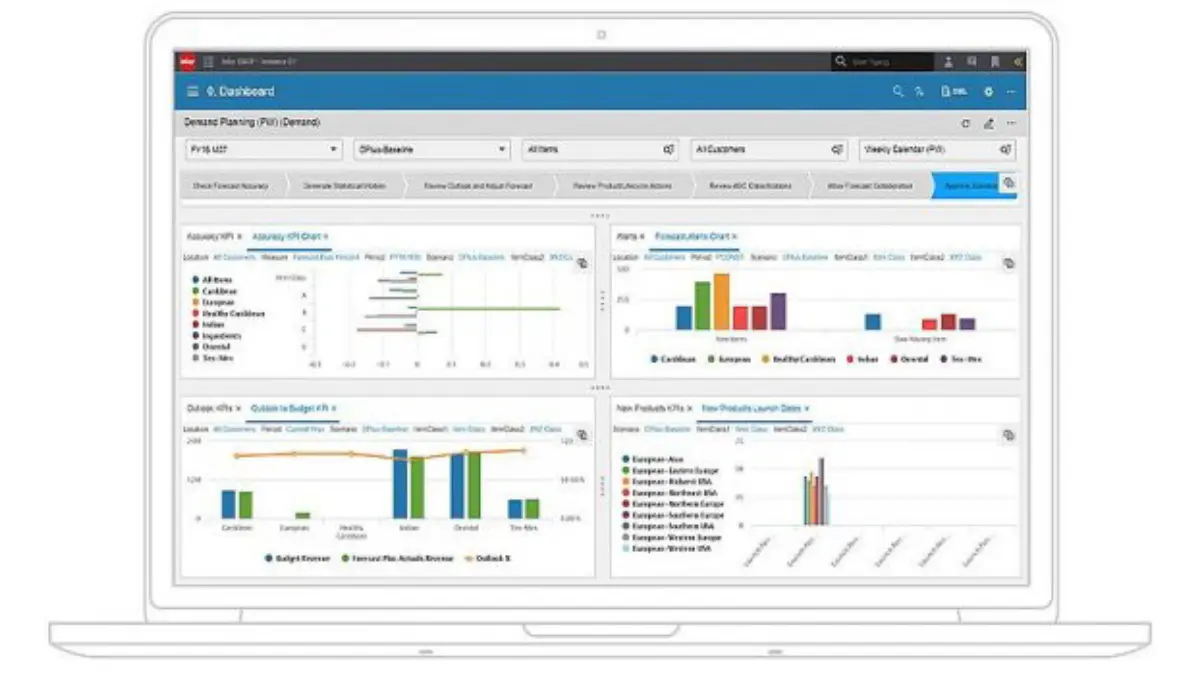
Infor CloudSuite is a robust manufacturing engineering software designed for complex manufacturing operations. With real-time insights, AI-driven analytics, and seamless integration across manufacturing management, it optimizes production planning and improves inventory control. This system is perfect for global manufacturers.
Key features:
- Built-in analytics and reporting
- Advanced material planning and scheduling
- Real-time production monitoring
- Supply chain planning and execution
- Embedded AI and machine learning
| Pros | Cons |
|
|
3. Limble
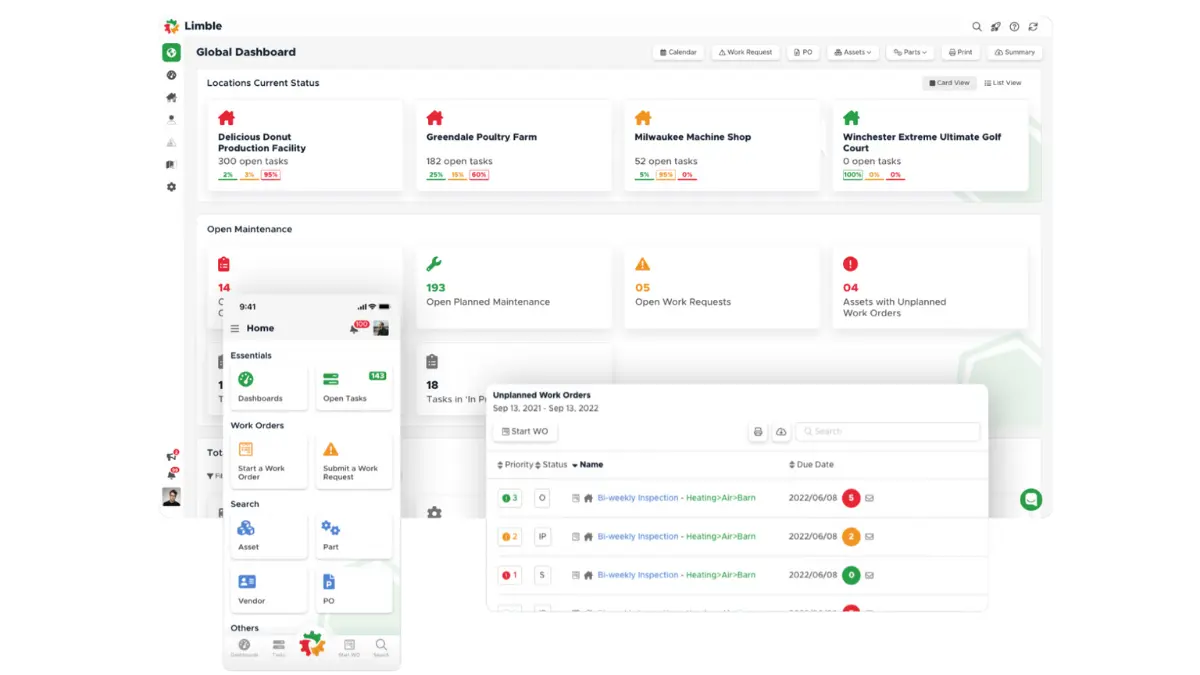
Limble is an effective manufacturing engineering software for maintenance management. It automates work orders, schedules preventive maintenance, and provides real-time tracking of asset health. This helps reduce downtime and optimize the maintenance process, improving overall manufacturing efficiency.
Key Features:
- Mobile and Offline Access
- Automated Work Order Management
- Preventive Maintenance Scheduling
- Customizable Dashboards & Reports
- Asset & Inventory Tracking
| Pros | Cons |
|
|
4. QAD ERP
QAD Adaptive ERP is cloud manufacturing software for global industries (automotive, life sciences, industrial equipment) offering real-time insights into production, inventory, and supply chains, enhancing efficiency and compliance. It aligns with industrial engineering principles to optimize processes and visibility across locations.
Additionally, QAD ERP supports multi-site and multi-country operations, helping businesses stay agile in a fast-changing market. With capabilities in manufacturing management, supply chain management, and finance, it enables manufacturers to respond quickly to disruptions and optimize resources for better decision-making.
Key features:
- Manufacturing management
- Supply chain management
- Financial management
- Customer management
- Analytics and KPI dashboards
| Pros | Cons |
|
|
5. Global Shop Solutions
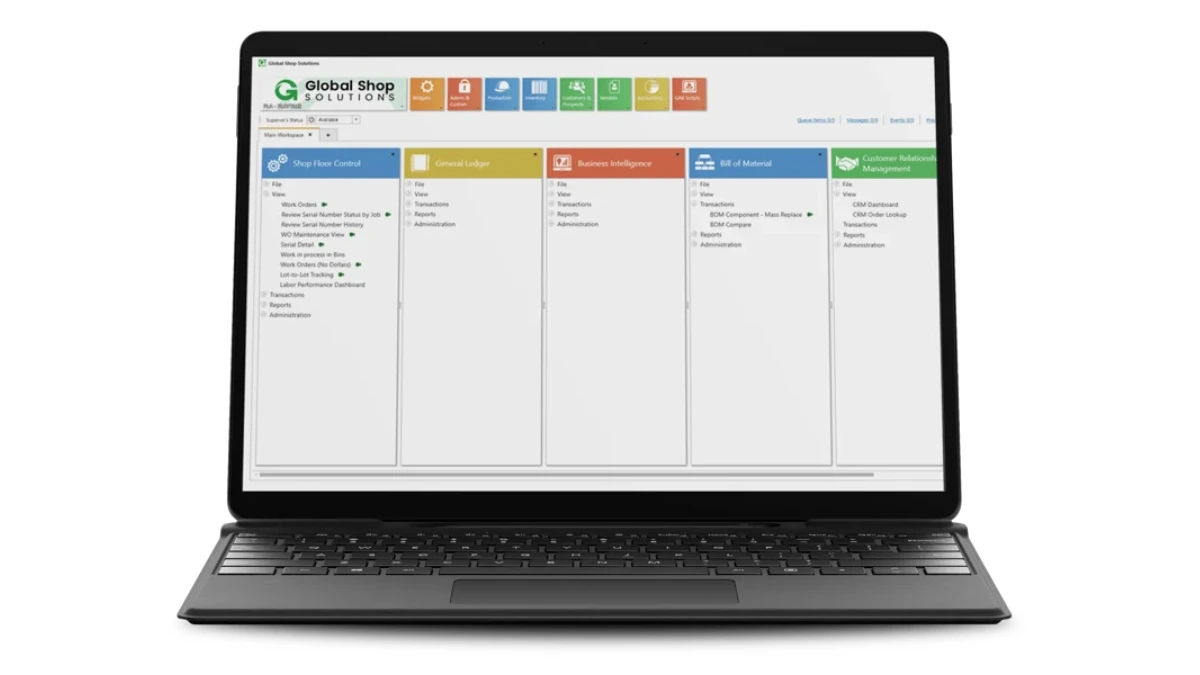
Global Shop Solutions is an all-in-one ERP platform designed to optimize manufacturing operations. It offers real-time inventory management and production visibility, helping businesses improve control over their processes. Supporting workflows like make-to-stock, make-to-order, and engineer-to-order, it enhances operational efficiency.
Key features:
- Real-time inventory and production management
- Integrated shop floor control
- Customizable dashboards and reporting
- Production and scheduling automation
- CRM and supply chain integration
| Pros | Cons |
|
|
6. Odoo ERP
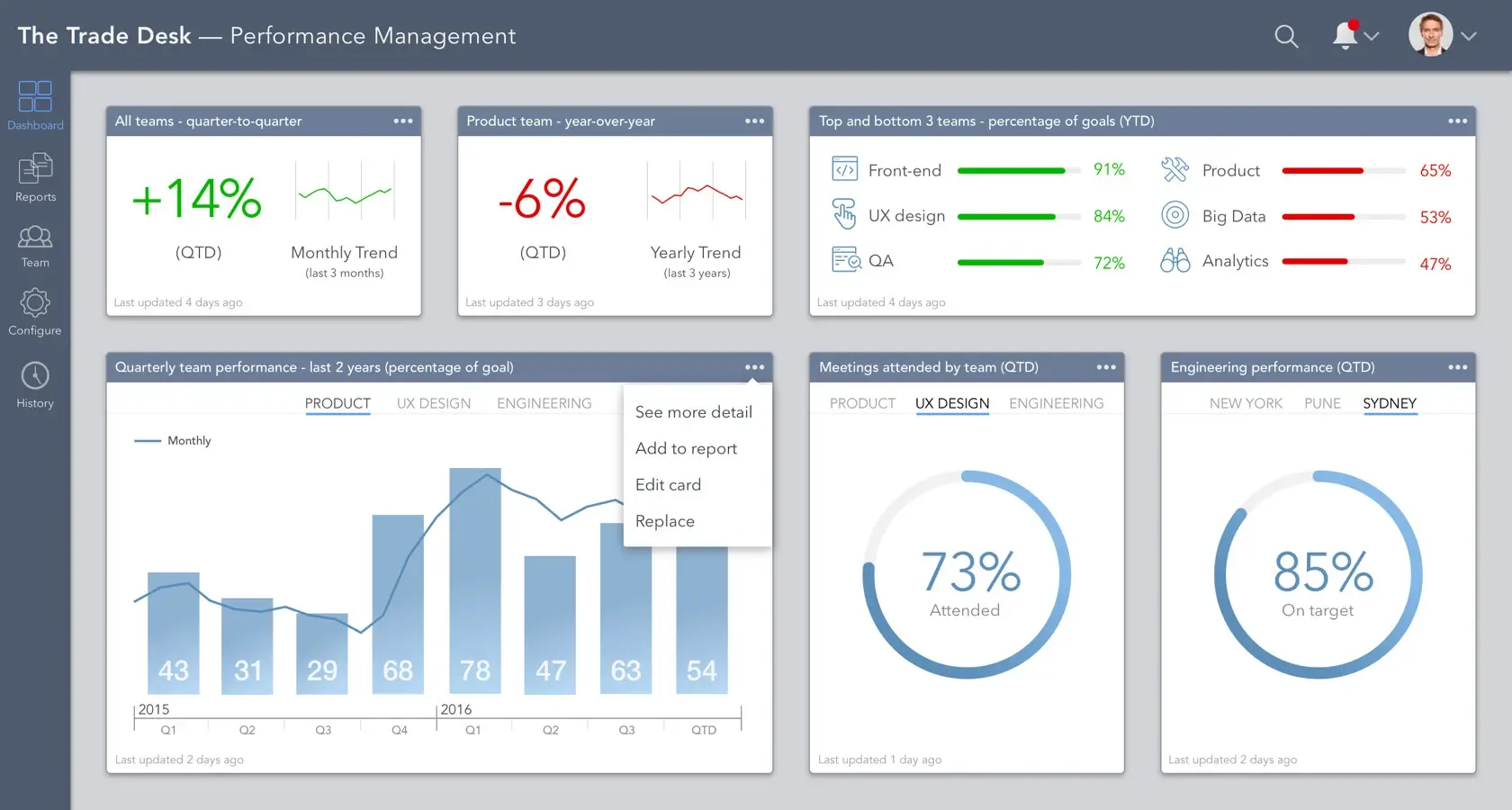
Odoo ERP is a flexible, open-source system designed to suit businesses of various sizes. Its modular design allows organizations to pick and customize applications based on their specific needs, ensuring that companies across different industries can benefit from tailored solutions that streamline operations.
Odoo ERP provides extensive tools that simplify manufacturing management. These tools include BOMs, routing, and work orders, all of which seamlessly integrate with inventory and planning. Consequently, this robust system significantly boosts efficiency for both small and large manufacturers, thereby ensuring smooth workflows.
| Pros | Cons |
|
|
7. Katana

Katana is a cloud-based MRP (Material Requirements Planning) software specifically designed for small and medium-sized manufacturing businesses. It offers a variety of modules, allowing companies to efficiently plan production, manage inventory, and handle orders and purchases in a streamlined manner.
This software offers comprehensive solutions. For instance, it provides robust production planning capabilities. Furthermore, it allows for real-time inventory control. Moreover, it centralizes sales order management. Ultimately, Katana integrates seamlessly, ensuring smooth operations from production to delivery.
| Pros | Cons |
|
|
8. DELMIAWorks
DELMIAWorks is a well-established ERP solution designed to optimize manufacturing operations and enhance cross-departmental collaboration. This manufacturing engineering software automates key processes and helps businesses streamline their workflow, making it a powerful tool for improving operational efficiency.
Key features:
- Resource planning
- Inventory management
- Production scheduling
- Product quality tracking
| Pros | Cons |
|
|
9. Fishbowl
Fishbowl offers manufacturing engineering software for SMBs, focusing on cost efficiency and ease of use. It simplifies inventory and order management, aiding business growth.
Key features:
- Advanced inventory management
- Order manufacturing capabilities
- Reporting and analytics tools
| Pros | Cons |
|
|
10. MRPeasy
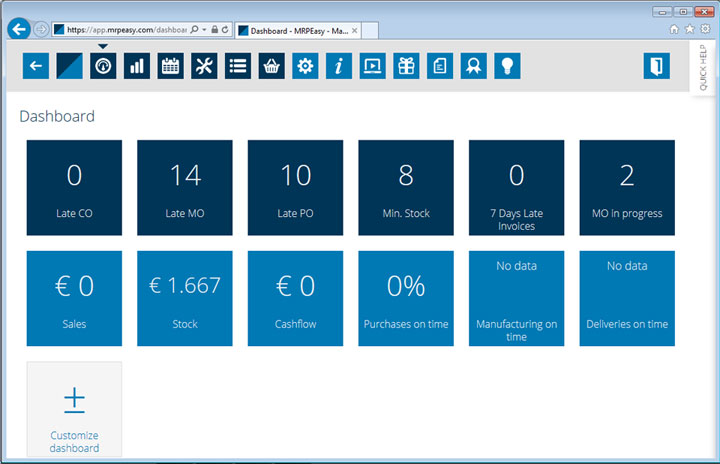
MRPeasy is a comprehensive manufacturing engineering software designed for small to medium-sized manufacturers. This ERP system supports efficient production planning, work order tracking, resource allocation, and quality control, helping businesses streamline their operations and improve productivity.
Some of its standout features include procurement tools that automate the purchasing process, CRM sales management for tracking customer relationships, and purchasing management to oversee tasks like order placement and invoice handling. These tools ensure seamless workflows across production, sales, and procurement.
| Pros | Cons |
|
|
11. Total ETO ERP

Total ETO ERP is manufacturing software for Engineer-to-Order (ETO) manufacturers. It automates processes to improve accuracy and meet deadlines. A key benefit is sourcing long-lead items early, before project design completes, ensuring a smoother production timeline.
The software’s core features include advanced project management tools, comprehensive reporting metrics, and an efficient procurement process. These capabilities provide real-time insights that enable seamless department coordination and smooth operations, helping businesses maintain a steady production flow.
| Pros | Cons |
|
|
12. QuickBooks
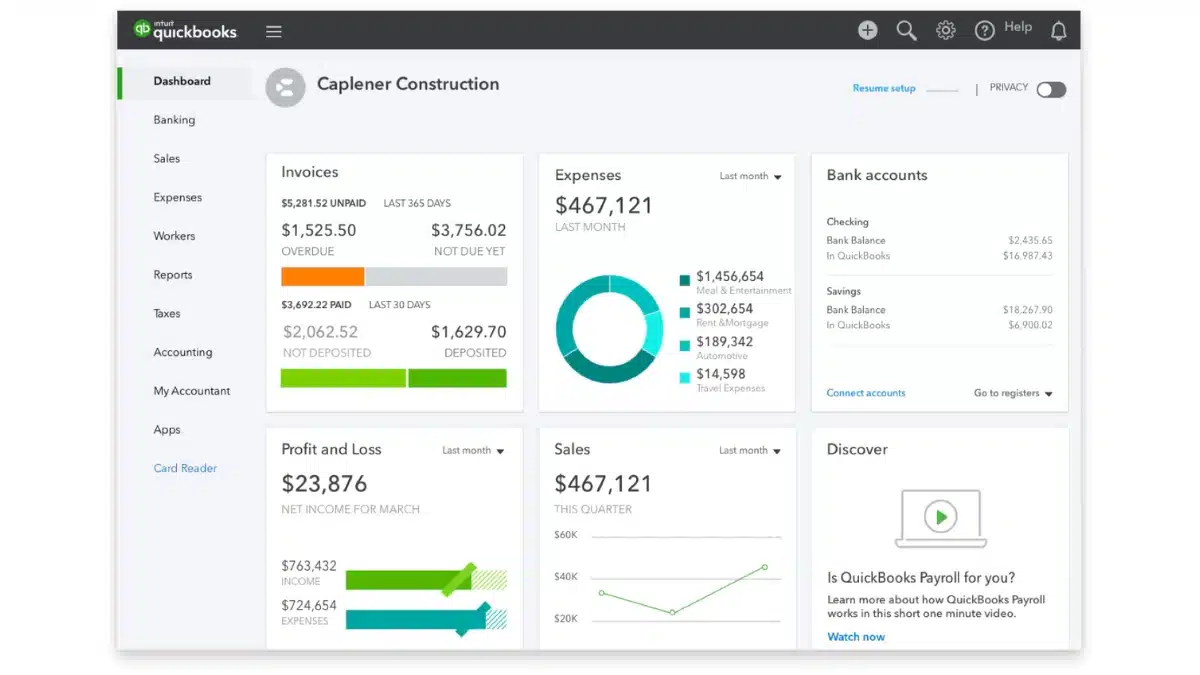
QuickBooks ERP is user-friendly manufacturing software for small and medium manufacturers. It combines accounting, production tracking, inventory management, and financial reporting into a simple, comprehensive solution for less complex needs.
Key features:
- Production and inventory tracking
- Financial management and reporting
- Order and billing management
- Integrated payroll features
- Vendor and customer tracking
| Pros | Cons |
|
|
How to Choose the Right Manufacturing Engineering Software for Your Business?
When selecting manufacturing engineering software for your business, the right choice can significantly impact your efficiency, growth, and bottom line. With a wide range of options, it’s crucial to assess each one carefully. To help with your decision-making, consider the following questions:
1. Does the software solve your specific business challenges?
Make sure the software addresses your key pain points in manufacturing engineering, whether it’s streamlining production, improving resource allocation, or optimizing inventory management.
2. How reliable is the software provider?
It’s essential to work with a provider who has a proven track record in the industry. Look for positive customer feedback and a commitment to offering continuous updates and enhancements.
3. What’s the cost structure like?
A subscription-based model may be a good option if you’re looking to minimize upfront costs. Ensure that the software’s pricing fits within your budget while providing value for its features.
4. Will the software be supported with regular updates?
Choose a solution that stays up-to-date with industry changes. Regular updates ensure that the software remains relevant and compliant with evolving manufacturing regulations.
5. Is it compatible with your existing infrastructure?
Ensure that the software integrates well with your current IT setup. It should complement your existing systems and won’t require an overhaul of your infrastructure.
6. Can it grow with your business?
As your business expands, the software should be able to scale. It must be flexible enough to handle increased production demands, additional users, and more complex processes.
By considering these factors, you can make an informed decision and select the manufacturing engineering software that best supports your business operations and long-term goals.
Conclusion
At the end of the day, the best manufacturing software isn’t the one with the longest feature list it’s the one your team will actually use every day. Start by identifying your biggest operational headache, then find the tool that fixes it without overcomplicating everything else.
To unlock manufacturing potential, consider HashMicro’s software. It offers integrated solutions for production planning, inventory, and financials. With customization and real-time reports, it helps Malaysian businesses boost efficiency, cut errors, and grow sustainably.
Want to see how HashMicro’s ERP system can benefit your business? Book a free demo today and discover how it can optimize your manufacturing processes and boost productivity.
FAQ About Manufacturing Engineering Software
-
Is manufacturing engineering difficult?
Manufacturing engineering is challenging, involving complex systems of machinery, materials, and human resources. Engineers must balance cost-efficiency, safety, quality, and sustainability. Training and tools like manufacturing software improve efficiency.
-
What is the difference between MES and MRP?
MES (Manufacturing Execution System) focuses on managing and monitoring work-in-progress on the shop floor, ensuring real-time production tracking, while MRP (Material Requirements Planning) focuses on ensuring that the right materials are available for production at the right time.
-
What is the most common manufacturing system?
The most common manufacturing systems include Make to Stock (MTS), Make to Order (MTO), and Engineer to Order (ETO). These systems define how products are produced and how inventory is managed. The choice depends on the type of product and production process.










